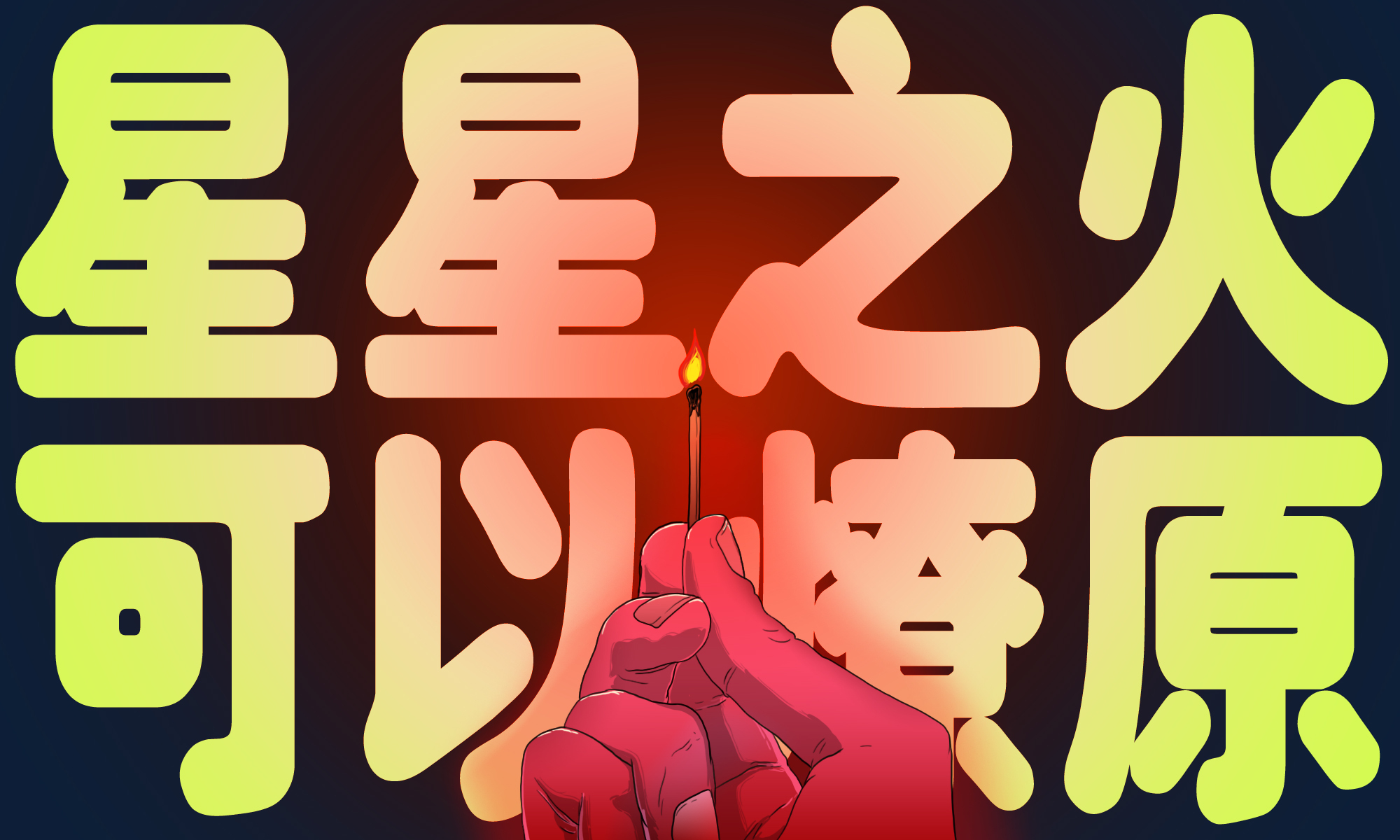‘A single spark can start a prairie fire’ — Phrase of the Week
A well-known Chinese phrase suggests protests across China might spark something much bigger.

Our phrase of the week is: A single spark can start a prairie fire (星星之火,可以燎原 xīngxīng zhī huǒ, kěyǐ liáoyuán).
Context
Protests took place across China over the weekend, including in Beijing, Shanghai, Nanjing, and Urumqi, where crowds demonstrated against ongoing COVID-19 lockdowns.
The protests came after a fire in Xinjiang’s capital city, Urumqi, which resulted in the death of 10 residents and the injury of nine more, leading many in China to question whether lockdown measures such as sealed doors may have prevented the victims from escaping the building.
The language from protesters in different cities is united by one theme: bringing an end to harsh COVID-zero lockdown measures that are crippling the economy and seriously affecting people’s lives.
The scale and geographical coverage of the protests are staggering. An article in Initium Media, a Chinese-language news organization originally founded in Hong Kong, suggested they may develop into something bigger:
Shouts of “Open up Xinjiang” in Shanghai mark the possibility that demands from different places may echo one another. Since then, even the protest along Liangma River in Beijing has taken a similar form. Although all the individual calls are small, combined together, they can now be called the single spark [that can start a prairie fire].
上海喊出的“解封新疆”标志着各地诉求串联的可能性,此后甚至连北京的亮马河都出现类似形式。种种迹象虽然极其微弱,但已经能够称得上星星之火。
Shànghǎi hǎn chū de “jiě fēng xīnjiāng” biāozhìzhe gèdì sùqiú chuànlián de kěnéng xìng, cǐhòu shènzhì lián běijīng de liàngmǎhé dōu chūxiàn lèisì xíngshì. Zhǒngzhǒng jīxiàng suīrán jíqí wēiruò, dàn yǐjīng nénggòu chēng de shàng xīngxīng zhī huǒ.
Translation
A single spark is the first half of a longer phrase, A single spark can start a prairie fire (星星之火,可以燎原 xīngxīng zhī huǒ, kěyǐ liáoyuán). Any Chinese person knows the full meaning, with just a mention of the first four characters.
The phrase — or the concept at least — is believed to have first appeared in an ancient Chinese text, The Book of Documents (尚书 shàngshū), one of China’s five classics, compiled more than 2,000 years ago.
If a fire is raging on the grassland and one cannot go near, can it still be extinguished?
若火之燎于原,不可向迩,其犹可扑灭?
Ruò huǒ zhī liáo yú yuán, bùkě xiàng ěr, qí yóu kě pūmiè?
The concept was used again during the Ming dynasty, when politician Zhāng Jūzhèng 张居正 explained that official corruption was a poison to society and can spark revolt:
Officials who are greedy and corrupt as well as traitors who have no registration records will stir up and incite discontent among the people. A single spark can start a prairie fire.
贪黩有司及四方无籍奸徒窜入其中者,激而构煽之,星星之火,可以燎原。
Tāndú yǒusī jí sìfāng wújí jiāntú cuànrù qízhōng zhě, jī ér gòu shān zhī, xīngxīng zhī huǒ, kěyǐ liáoyuán.
More recently, Máo Zédōng 毛泽东 used the same phrase in a letter to Lín Biāo 林彪, dated January 1, 1930, which was eventually included in Mao Zedong’s Selected Works (毛泽东选集 Máo Zédōng xuǎnjí), published in 1960.
In his letter, Mao criticized Lin for being too pessimistic about the prospects of the Red Army. “A single spark can start a prairie fire,” he said of the communist forces, which were small and relatively weak at the time.
The protests in China this week seem to have been curbed. But who knows what the flames that consumed a single building in Urumqi will eventually ignite.






